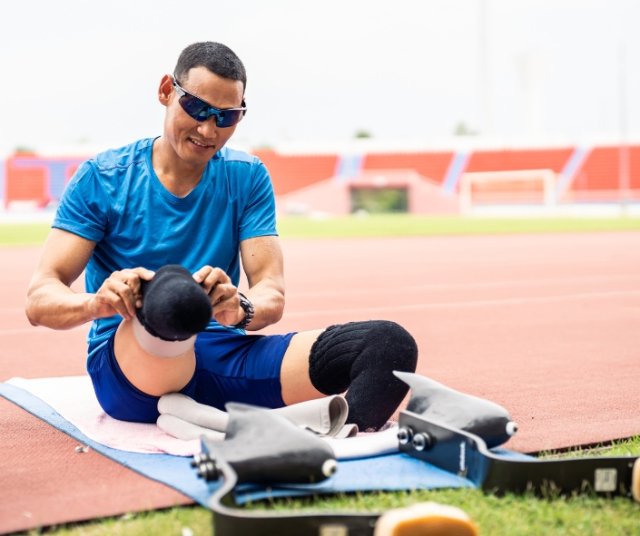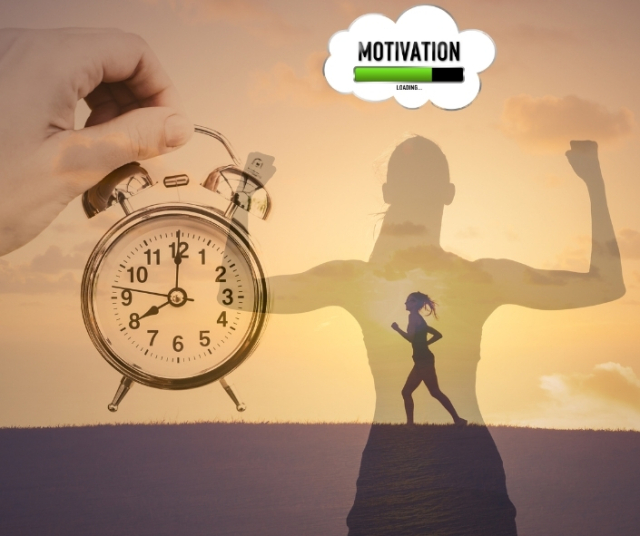The desire to adopt a more active and healthy lifestyle is a noble and valuable goal that many people share. However, we often encounter a number of challenges and obstacles that can hinder our path to regular exercise and physical activity. In this article, we will explore how to motivate ourselves to start exercising, addressing common concerns, identifying potential barriers, and offering effective strategies to overcome them.
The importance of initial motivation.
Before we dive into planning an exercise routine, it's essential to understand why we want to begin this journey toward a more active and healthy life. Initial motivation can come from a variety of sources, such as the desire to improve physical health, increase energy and vitality, reduce stress, improve body image, or simply enjoy the general benefits of exercise. Clearly identifying our individual motivations will help us stay focused and committed over time.
Overcoming economic barriers.
One of the most common barriers to starting to exercise is the cost associated with accessing exercise facilities, sports equipment, or fitness classes. For those on a tight budget, it may seem difficult to find affordable solutions to stay active. However, there are numerous affordable options that can suit different budgets. For example, going for a run or walking outdoors is free of charge, and there are plenty of online resources, such as free exercise videos on YouTube or fitness training apps, that offer effective routines at no additional cost.
Addressing mental and emotional barriers.
Addressing mental and emotional barriers is essential to starting and maintaining a successful and sustainable exercise program. These barriers can be some of the most challenging to overcome, as they often arise from our own perceptions, beliefs, and past experiences. Here's a deeper exploration into how to address these barriers and cultivate a positive mindset toward exercise:
Recognition of barriers.
The first step in addressing mental and emotional barriers is to recognize and accept their existence. This involves being honest with yourself about any negative thoughts or emotions that may be interfering with our desire to exercise. By identifying these barriers, we can begin to work on overcoming them and changing our relationship with exercise.
Challenge limiting beliefs.
Many times, our mental and emotional barriers are linked to limiting beliefs about our abilities, capabilities, or self-worth. We may feel intimidated by fear of failure, self-criticism, or fear of judgment from others. It is important to challenge these beliefs and remind ourselves that we are capable of overcoming obstacles and achieving our goals. Practicing self-affirmation and replacing negative thoughts with positive affirmations can help strengthen our confidence in ourselves and our abilities.
Cultivate self-acceptance and compassion.
Fitness is not about achieving perfection or meeting unrealistic standards. It's about caring for and strengthening our body and mind, and learning to appreciate and respect our individual limitations. Cultivating self-acceptance and self-compassion is essential to overcoming the mental and emotional barriers associated with exercise. Recognizing that it's okay to make mistakes, that progress can be gradual, and that each step in the right direction is a victory in itself can help us maintain a positive and motivated attitude toward exercise.
Focus on the emotional benefits.
In addition to the physical benefits of exercise, such as improving cardiovascular health, increasing muscle strength, and losing weight, it is also important to recognize the emotional and mental benefits it can provide. Regular exercise can help reduce stress, improve mood, increase self-confidence, and promote an overall sense of well-being. By focusing on these emotional benefits, we can find greater motivation to commit to a regular exercise routine and overcome any mental and emotional barriers that may arise along the way.
Find Support and Resources
Finally, it is important to remember that we are not alone in our journey towards a more active and healthy life. Seeking emotional support from friends, family, or health professionals can be invaluable in overcoming the mental and emotional barriers associated with exercise. Additionally, there are a variety of resources and tools available, such as self-help books, mental health apps, and online support groups, that can provide additional guidance and motivation to face and overcome these challenges.
Overcoming physical barriers.

Physical limitations, such as previous injuries, medical conditions, or disabilities, can present significant challenges to starting an exercise program. However, it is important to remember that physical exercise can accommodate a wide range of skills and abilities. Consulting with a health professional or personal trainer can help us develop a safe and effective exercise program that is tailored to our specific needs and limitations. Additionally, exploring low-impact exercise options, such as swimming, yoga, or stationary cycling, can be an effective way to stay active while avoiding injuries or exacerbations of pre-existing medical conditions.
Strategies for motivation and commitment.
Once we have identified our motivations and recognized potential barriers to starting to exercise, it is important to develop effective strategies to stay motivated and engaged in the long term. Some of these strategies include:
Set clear, achievable goals: Setting specific, realistic goals gives us a sense of direction and helps us stay focused on our goals as we progress on our fitness journey.
Seek social support: Sharing our exercise goals with friends, family, or training partners can provide us with an invaluable support system and increase our motivation to stay active.
Keep track of progress: Tracking our progress over time, whether by using an exercise tracking app, a training diary, or a simple calendar, can help us stay motivated and celebrate our achievements.
Vary your exercise routine: Incorporating variety into our exercise routine can help us avoid boredom and fatigue, and keep us motivated to continue exercising. Experimenting with different types of physical activities, such as strength training, yoga, dance, or recreational sports, can add fun and excitement to our exercise program.
Starting to exercise can be an exciting and rewarding step toward a more active, healthy, and fulfilling life. While there may be obstacles and challenges along the way, it is important to remember that each small step brings us closer to our health and wellness goals. By identifying our individual motivations, recognizing and addressing potential barriers, and developing effective strategies to stay motivated and engaged, we can overcome obstacles and build a positive, long-lasting relationship with fitness. The journey to a more active and healthy life begins today.






